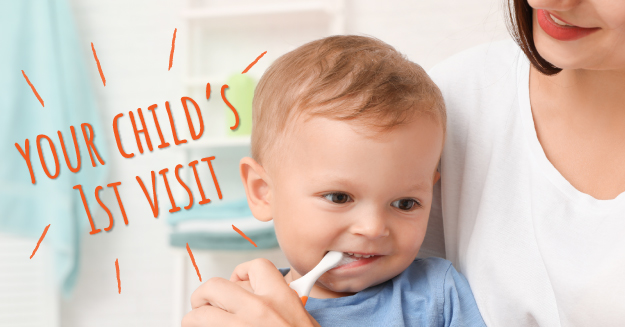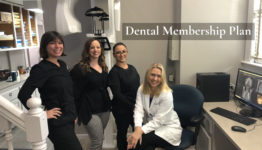
We encourage our patients to follow American Dental Association guidelines: Bring your child for his first dental visit before the first birthday or six months after the first tooth erupts, whichever occurs sooner. Early dental care is a vital step in ensuring your child’s optimal oral health as he matures.
Why so early? Do “baby” teeth matter?
They do matter. Baby teeth help your child properly chew food. Chewing is, after all, the primary reason we have teeth. With missing or painful teeth, your child may refuse to or be unable to eat the foods she needs for good health and proper growth.
Even though these primary or “baby” teeth are only temporary, they also play an important role in the progress of your child’s oral health. If we are able to catch problems, or potential problems, early when they are more treatable, we can often reduce or eliminate complicated issues that could arise later on.
A few reasons why evaluating primary teeth is important:
- Correctly aligned primary teeth foster optimal speech and facial development.
The tongue uses the teeth to form correct sounds when it strikes them. These teeth also provide a structure for your child’s developing facial muscles. - The first teeth act as space holders for later permanent teeth.
Correctly aligned baby teeth help guide the permanent teeth into their proper positions. If your child loses a temporary tooth, we will place a spacer to keep adjacent teeth from drifting or tipping, which can block or shift the underlying permanent tooth when it erupts. - We can detect early bite issues.
Generally, if a child will need braces, we recommend waiting until she is older. But some problems – crossbite, for one – may require palate manipulation that is much easier, and less expensive, to achieve before the jaw bones have locked into position.
What happens at this first visit?
First, we try to make your child as comfortable as possible. You may even hold her on your lap. We check her mouth, looking for any bite or growth issues, and count her teeth. If your child is comfortable and willing, our hygienist will clean her teeth. We will advise you on caring for her teeth and on actions you can take for finger or thumb sucking, which can alter bite.
We especially emphasize the importance of not letting your child fall asleep with a bottle of milk or juice. The liquid remains on the teeth as your baby sleeps and is a primary cause of decay for infants. If your child needs a bottle to sleep, make sure it is plain water.
This early visit to your dentist will acquaint your child with our office and reduce or eliminate fear later on. Moreover, promoting a positive attitude toward dental care and oral hygiene is likely to instill good oral health habits for life. For an appointment for your baby, please contact our office.



